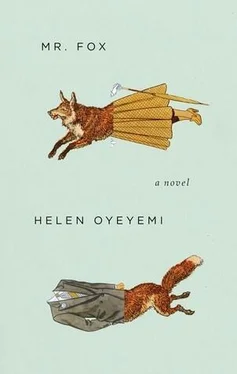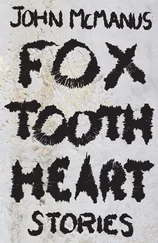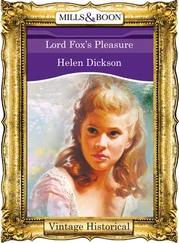“Oh, a poet. . but what’s that?” Wishy-washy, that was how she found most poetry — it just missed the point over and over again.
“What’s that,” he agreed, laughing. “What’s that. . ”
He took her plate from her hand. “And now I will release you, even though you are unfair and have told me nothing in exchange.”
She assured him that there was nothing to tell. “Perhaps you could sing a song, then,” he suggested. “Or turn a cartwheel — or you could laugh, yes, laugh wonderfully, just as you are doing at the moment.”
She left him with the cake and went up to her attic. She put on her nightgown, did her stretching exercises, applied cold cream to her face, and arranged herself on her bed with a stack of pillows supporting her head and neck. She looked up through her attic windows, up into the cloudy night. So Mr. Pizarsky had been a poet? That was how he’d said it: “I was a poet.” As if the poet had died. He was in hiding, perhaps. He might have written something that someone powerful hadn’t liked. .
. . There she lay, casting him as a character in one of her own romances. He didn’t cut anything like a dashing figure. And he’d need to be four inches taller before he could even make an appearance in her prose. No more nonsense. At the count of three I shall go straight to sleep, she informed herself. One. Two. Thr—
Mary Foxe woke up feeling refreshed. And a little regretful. What if she were to abandon the task at hand? Mr. Fox was a hard nut to crack. It was good that he didn’t know how Mary tried to take care of him, alphabetizing his reference books and checking and correcting his spelling and grammar while he lay asleep with his wife in his arms. If he knew how Mary loved him he would turn it against her somehow; he would play with it. Because that was what Mr. Fox did — he played. And there was something appealing about this Mr. Pizarsky. . Perhaps she could find him, or someone like him, out in the world. She imagined their courtship — quiet, restrained, but full of tenderness. She would learn more about Poland and he would learn more about England and they would clear up many funny little misunderstandings. They would pore over maps together— I was born here, I went to school here. . They’d go to the seaside, and sit on the pier under umbrellas, in the rain. He would take her to the pictures and bring her violet creams. He would declare himself without words, bring her a daisy and retire with haste. And just thinking of how much he desired her but dared not presume, she would swoon over the tiny flower, dragging its petals across her lips and the backs of her hands, then shyly, languorously, along her inner thighs. . And in time, and by being a good woman, and a patient woman, she would have won a good and patient man.
Mary turned onto her side. The pillow she was lying on was covered in spidery words: tiny but legible. She rubbed her nose against one of the words and smudged it. The words were carefully spaced so that the pale green of the pillowcase haloed them. “What. .” Whole paragraphs. And they were numbered: 7, 8, 9. She turned again. Her head was surrounded with more writing. There was yet more under her hands; long lines of words meandered all along the duvet, some running horizontally, some diagonally, some fitting into one another like puzzles. And numbered, all numbered. Laughing in an appalled sort of way, Mary Foxe pulled the pillow out from under her head and read:
1. I may not be here when you wake up. If I am not here, read on.
2. Mary Mary, quite contrary. I’m the easy option. You won’t want me.
3. I have bought you more pillowcases and another duvet cover, in case you cannot stand what I have done to these ones. I took them off the bed before I wrote on them, so there’s no need to worry about the ink bleeding into the pillows, etc.
4. My English is probably better than yours. I deliberately muddle my grammar when I speak. It puts people at ease. They become friendly when I get things wrong — they speak slowly, use shorter words, to help me. I hate it, but it’s the best way to get on. You have never done this with me. Thank you.
5. I often sing Christmas carols in June, and I don’t think it’s bad luck. Do you?
6. It was on April 2nd last year that I discovered you had a dimple in your right cheek. You smiled at me for some reason. (Why? I had done nothing to deserve it. Please explain, if you remember April 2nd.) On the calendar in my office I made a note: “M.F. revealed dimple today.” What do you think of sentimental men? I’m sure you hate them. And you’d be right to.
Mary sat bolt upright. Was Mr. Pizarsky a dream, or not? She studied her surroundings. She had no idea where she was. There was a vase full of foxgloves on her bedside table, their petals the pale, shocking blue of the veins in a wrist. She moved on to the next pillow.
7. I learnt English when I went to war. People think I’m lying when I say that, but that’s how it was. We were in Galicia, Poles in Russian uniforms, trying to court independence; we managed to occupy only a slice of the place while the Germans and the Austrians made off with the rest. We were fighting so very hard and achieving so very little aside from staying alive. BUT THAT’S EVERYTHING, my father wrote to me, when I told him that in a letter. I studied to take my mind off things. At dead of night in the mess hut— Pride and Prejudice, an English-to-Polish dictionary, and a candle. I could have burnt the place down. But I had to do it. I needed words, lots of words to think about while I was going about the rest of the day. And I didn’t want anything affected. I wanted nothing to do with those Romance languages. I wanted clipped words, full of common sense. Thoughts to wear beneath my thoughts. Allow, express, oath, vow, dismay, matter, splash, mollify. I liked those words. I liked saying them. I still do.
8. I helped to load cannons. People are not good at war. Can I really say that, when all I know is that I and those around me were not good at war? Don’t say our hearts weren’t in it — they were. But we got sick, some of us unto death. Spanish flu and the rot of trench foot, and there were such smells, they made us sick to our stomachs. A few of our men dropped cannonballs and broke their legs. That sort of thing. And then there was my cousin Karol. The first time he successfully shot a man, he didn’t see a way to stop shooting; he knew he had to do more, and with greater speed than the first kill. He couldn’t aim steadily at anyone else, so he turned his rifle on himself — and missed, and missed; each time he did it was as if he were playing some sort of horrible trick on himself, the worst kind of bluff. He told me all about it. “Calm down, Karol,” I told him. “You must keep your head.”
9. Wake up, Mary.
10. I had a great-uncle; he was rich, and we shared a Christian name. He liked me. I made him laugh, without even trying. I said naive things that I really believed in. Things about life, and money. He almost killed himself laughing at me. He liked to slap me on the back and tell me I looked like a peasant. When he died he left me a lot of money. I liked him then. Before that, I must say I had often daydreamed about punching him in the throat. His neck was very fat. He owned factories, and I used to think that people like him were the source of all that was evil in the land.
11. Wake up, wake up. .
12. When I was in Galicia I tried not to think of my fiancée. I didn’t write to her much, and in her own way she reproached me for that. She had every right to, so I won’t dwell on the maddening, indirect ways in which she reproached me. Anyhow, I lost her. When I came back she looked through me and seemed displeased — I might have been the ghost of Banquo for all the pleasure she took in my company. She’s happy now — she married my cousin, a good boy, who is tender with her. (Yes, Karol — I believe I mentioned him in point 8.)
Читать дальше












